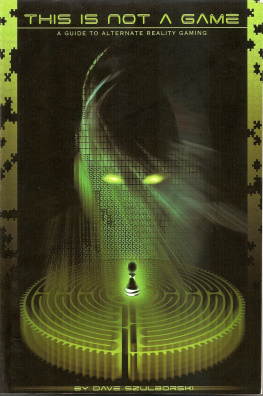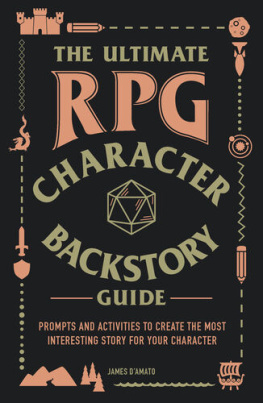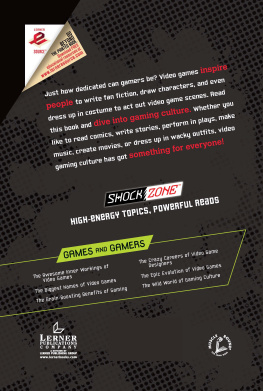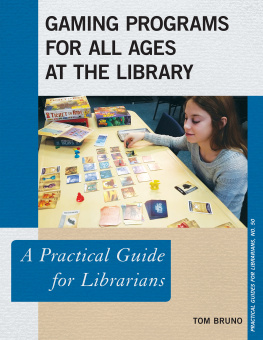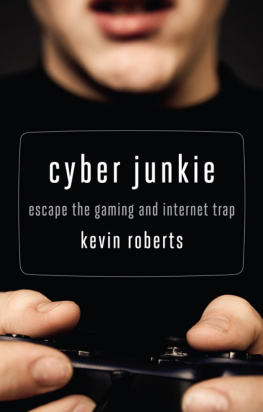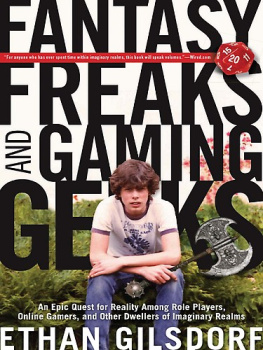This Is Not A Game
A Guide to Alternate Reality Gaming
By Dave Szulborski
Copyright 2005
All rights reserved. No part of this book may be reproduced or transmitted in any form or by any means without permission by the author.
ISBN: 1-4116-2595-1
Published by New-Fiction Publishing
www.new-fiction.com
Table of Contents
Part One: Alternate Reality Games in Theory
Part Two: Alternate Reality Games in History
Part Three: Alternate Reality Games in Practice
Dedication
This Is Not A Game is dedicated first and foremost to my family, for always believing in me and for encouraging and reminding me to enjoy life. For my parents, who taught me that success lies in doing what you love, not in what pays the best. For my brothers and sister, who taught me that family bonds can grow stronger through the years, despite miles between us and different lives to lead. For my children and grandchildren, who gave me the strength to carry on through the darkest of times. For my late wife Rose, who passed away much too young, but will live on in our hearts forever. And finally, for Brittany and Cole, who proved to me that miracles do happen, and that strength, hope, and courage sometimes come in the smallest of packages.
Secondly, This Is Not A Game is dedicated to the Urban Hunt Puppetmaster team Dee, Becca, Diandra, Rick, and Paul who made my latest excursion into the land of Alternate Reality Gaming enjoyable and memorable. I miss our Tuesday night meetings.
Dave Szulborski - January 1, 2005
Acknowledgements
This Is Not A Game would not have been possible without the work and contributions of many people including:
Joseph Matheny, who edited, encouraged, organized, and marketed the book. He also contributed the Appendix relating to cooperative writing projects.
Steve Peters, the owner of ARGN.com, who contributed a section in Chapter 15 looking ahead at the future of ARGs.
Ben Mack, award winning magician and advertising guru, who wrote Appendix E, The Structure of Magic.
Dee Cook, one of my fellow Puppetmasters from my latest game Urban Hunt. She contributed a personal reflection on the game creation experience in Appendix C.
Paul Melamud, another of my fellow Puppetmasters from Urban Hunt. Paul contributed a detailed analysis of one of the puzzles he created for the game in Appendix D.
Thank you to each and every one of the above people who made This Is Not A Game possible. I hope the book inspires many new Alternate Reality Gaming fans and Puppetmasters long into the future.
Introduction
Imagine an event so powerful, so pervasive, that years after the initial exposure people who participated in it still gather to talk about it and long for the days when it actually took place. An event that participants willingly gave months of their lives to, without any thought of reward or recognition, in a collective effort to help others. How would you classify such an event, what would you call it, and how would you go about understanding it? Would you think it was something religious or spiritual, or perhaps even cultish?
What if the event itself never took place but was entirely fictional? A carefully constructed and deliberate attempt to deceive people while promoting a secret agenda. And, to make it even more difficult to comprehend, the participants came to know that they were indeed being misled, and still reminisce about the event as one of the most enjoyable things in their lives. Maybe now you would think it was some sort of mind control or conspiracy on a grand scale. And you wouldnt be too far wrong.
In April 2001, observant people attending the Steven Spielberg movie A.I.: Artificial Intelligence noticed a curious listing in the movies credits that seemed strangely out of place amidst the listings for Best Boy, Stunt Man, and the other familiar positions required to make a feature film. The listing read Jeanine Salla, Sentient Machine Therapist. Many people who saw it passed it off as a playful inside joke, a tongue-in-cheek nod at the artificial intelligence themes of the movie itself, until some other small and intriguing clues were also discovered.
This time, the clues were small letters on the back of the movies promotional posters, some circled in silver spelling out the phrase,
Evan Chan was murdered, and others, outlined in gold squares, yielding the message, Jeanine is the key. Googling the name Jeanine Salla led to a series of intricately detailed and highly realistic websites and eventually led thousands of people to get involved, trying to figure out who killed the fictional character Evan Chan.
When it was all said and done three months later, somewhere between seven and ten thousand people had joined the collective effort to solve the mystery, while hundreds of thousands (perhaps millions) more were exposed to the Beast , as it retrospectively came to be known, through the massive media coverage and Internet buzz it generated. Afterwards, almost universally, the dedicated core of approximately eight thousand participants, who named themselves the Cloudmakers early in their quest, declared it one of the most unique, exciting, and enjoyable things they had ever been a part of. And this was in spite of the fact that they had learned that the whole thing had been a promotional vehicle, a marketing campaign to publicize the A.I. movie itself. Judging from the lack of success of the movie, it would be hard to classify the marketing aspect of the Beast as overwhelmingly effective, but that would be missing the bigger picture. And it certainly wouldnt explain how, years later, the Cloudmakers are still talking about and wishing for ways to relive the experience.
Fast forward three years later to the summer of 2004. In a movie trailer for the highly anticipated upcoming video game Halo 2 ,people in the audience think they see something strange happen to the tagline that gives the website address for X-Box, the system for which the game is being developed. It looks like, momentarily, the address changes to http://www.ilovebees.com. Simultaneously, the creators of certain key gaming sites on the Internet receive mysterious packages via FedEx honey jars with letters placed inside the honey. The letters spell out the same odd message that was hidden in the Halo 2 trailer, i love bees.
Their curiosity aroused, people who had either seen the message in the trailer or received the mysterious packages went to the website they were being directed to and discovered a web page as odd as the messages themselves. The hidden messages they discovered on the website led them down a three month long trail of e-mail messages, puzzle solving, and actually venturing forth for weeks on end to answer hundreds and hundreds of payphone calls across the country. During the course of the game, thousands and thousands of people participated both online and in real life, with an estimated one million people in total having been exposed to the project in one way or another. And even though it has only recently concluded, the campaign is already being hailed as one of the most innovative and successful promotional efforts of the year.
So what accounts for the tremendous success of both these efforts? What is powerful enough to motivate thousands of people to devote hours and hours of their time online and in the real world participating in what they all know is essentially an advertising campaign?
Welcome to the world of Alternate Reality Gaming.
Notes from the Author
I want to take a moment to set forth my goals in writing This Is Not A Game , and also to explain some of the decisions I made about structure and content while writing it.
First and foremost, this book is intended to be an introduction to the exciting world of alternate reality gaming, and an attempt to explain just exactly what an alternate reality game (ARG) is. It was inspired partially by the recent huge influx of new fans to the genre as a result of the widely successful campaign called I Love Bees , but also out of the sheer frustration of trying to explain to anyone who asked me what I had been spending my time on for the last few years. To those who have never heard of them, alternate reality or immersive games arent an easy concept to put into words. So, from now on, I can just hand them a copy of this book, instead of trying to even explain it.
Next page
